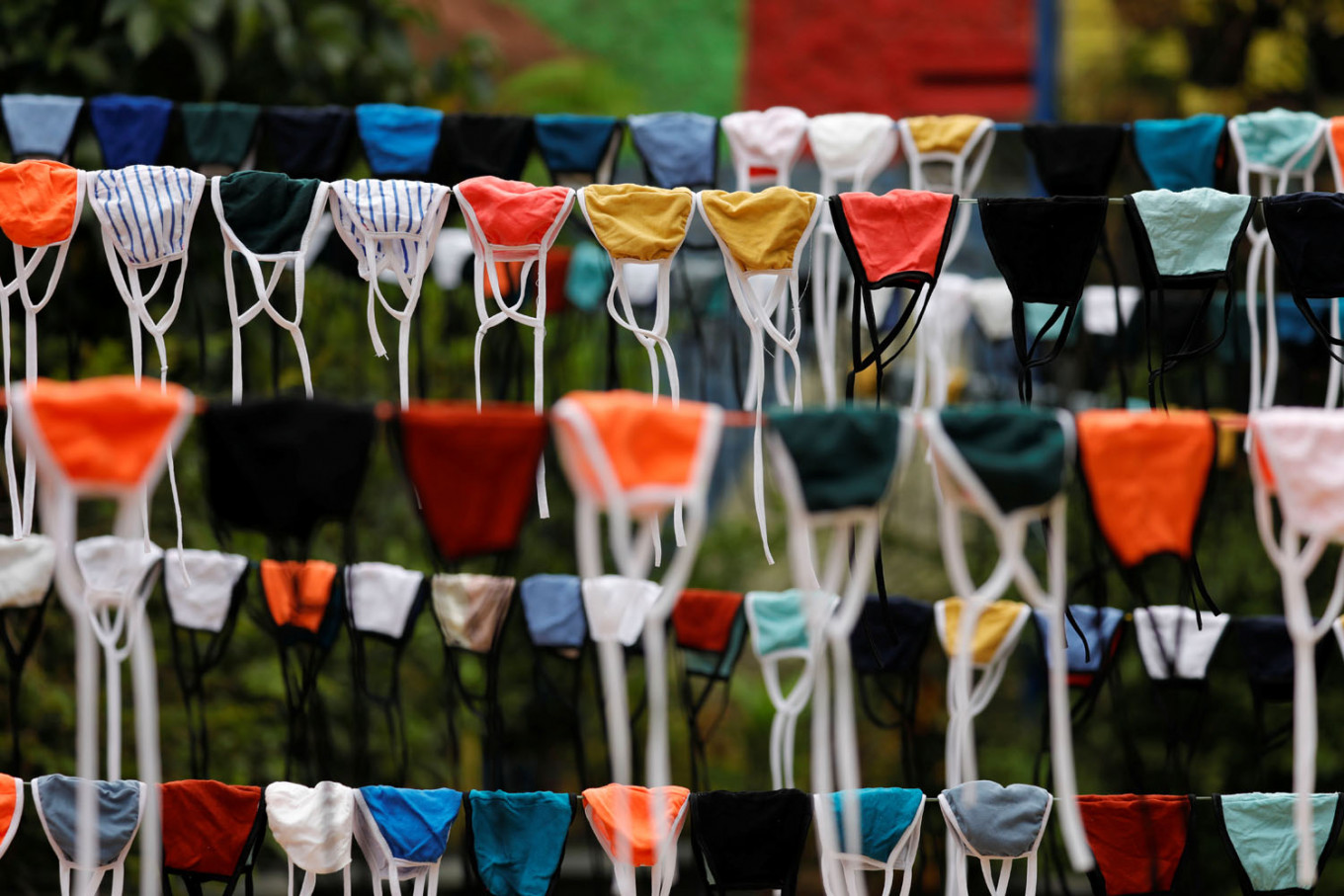Popular Reads
Top Results
Can't find what you're looking for?
View all search resultsPopular Reads
Top Results
Can't find what you're looking for?
View all search resultsBSN sets national standard for cloth masks
Change text size
Gift Premium Articles
to Anyone
 Cloth face masks hang to dry before being distributed around the neighborhood, amid the COVID-19 pandemic, in Tangerang, on the outskirts of Jakarta, on April 9, 2020. The National Standardization Agency (BSN) has issued the Indonesian National Standard (SNI) for cloth face masks, which requires them to have at least two layers of fabric for extra protection in filtering out respiratory droplets. (Reuters/Willy Kurniawan)
Cloth face masks hang to dry before being distributed around the neighborhood, amid the COVID-19 pandemic, in Tangerang, on the outskirts of Jakarta, on April 9, 2020. The National Standardization Agency (BSN) has issued the Indonesian National Standard (SNI) for cloth face masks, which requires them to have at least two layers of fabric for extra protection in filtering out respiratory droplets. (Reuters/Willy Kurniawan)
T
he National Standardization Agency (BSN) has issued the Indonesian National Standard (SNI) for cloth face masks, which requires them to have at least two layers of fabric for extra protection in filtering out respiratory droplets.
"SNI 8914:2020 requires cloth masks to be made from woven and/or knit fabric from various kinds of fiber. They should also consist of at least two layers of fabric and be washable for multiple times,” BSN standard development deputy Nasrudin Irawan said on Tuesday as quoted by tempo.co.
In addition, cloth masks must be packaged into plastic wrapping with product labels attached. The product labels must at least display information about the brand, the country of origin, the type of fiber of each fabric layer, the antibacterial guarantee, waterproof guarantee, “wash before use” sign, washing procedures and the type of mask.
For the type of mask, the SNI categorizes cloth masks into three categories, namely Type A for common use, Type B for bacteria filtration and Type C for particle filtration.
However, the standard does not apply to nonwoven cloth masks and face masks for babies.
Read also: Which face mask should I wear?
The issuance of the SNI for cloth masks would not necessarily overcome the health and security problems, especially during the pandemic, Nasrudin said. However, if used correctly, cloth masks can filter out droplets from coughs and sneezes carrying the virus.
Regardless, “though washable and reusable, cloth masks should not be used for more than four hours because cloth masks are not as effective as surgical masks in filtering particles, viruses and bacteria,” he said.
A study by Indian pharmaceutical company Varsoy Health Care showed that surgical masks had a 90 to 95 percent efficiency in filtering dust particles, viruses and bacteria. Meanwhile, cloth masks only have a 50 to 70 percent efficiency.
Previously, health authorities advised the public against wearing face masks made of thin materials, such as neoprene fabric often marketed as a “scuba” mask, and multipurpose scarves, as they were often made of one-layer of fabric. The authorities argued that such masks were less effective at filtering out respiratory droplets. (trn)









